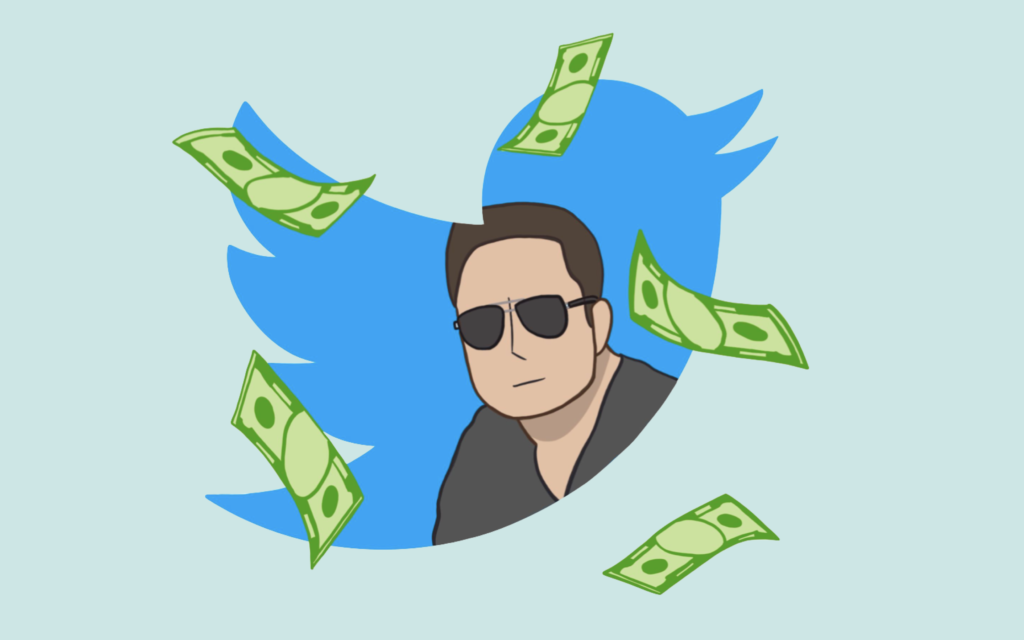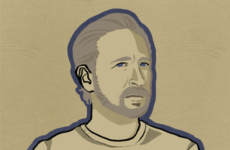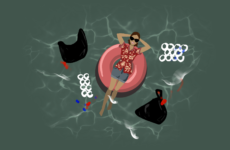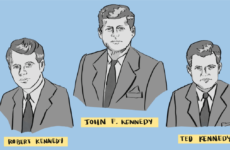
Graphic by Carolyn Chen ’25 /The Choate News
Elon Musk’s proposed acquisition of Twitter has dominated news headlines over the past several weeks. Many have questioned what sort of content will be allowed on Musk’s Twitter, given his stated intention to make Twitter a more free-speech-friendly platform. These fears are well-founded: the history of social media and Twitter has shown the dangers of misinformation and hate speech. While Musk may have noble intentions in preserving freedom of speech, a closer look would indicate that Twitter, privately controlled by Musk and out of the public limelight, is likely to create more headaches for democracy. Such a change will allow the worst parts of social media to proliferate falsehoods and further polarize the internet.
While Twitter is a much smaller company compared to its social media peers, such as Facebook and Tik Tok, its influence is disproportional in our society due to it being many politicians and public figures’ first choice in disseminating information. Twitter is a platform that holds considerable power in influencing how society expounds and refines its views. As a result, it has often been abused by those seeking to promote hate speech and misinformation. Perhaps the most memorable, recent example of this is the use of Twitter by former President Donald Trump, who claimed that the 2020 Presidential Election was stolen from him.
Following the January 6 Capitol riot, Trump’s twitter account was banned The reality is that the toxic cycle of tweeting and angry responses to those tweets has become an ingrained feature of the Twitter ecosystem, despite efforts by the company to gradually put guardrails in to limit abuse on the platform. And just recently, Musk stated his intention to place Trump back on Twitter, calling his initial removal “morally wrong.”
Musk insists that Twitter is the “Town Hall” of digital speech, and he wants to preserve all “legal” speech on Twitter. While Musk is undoubtedly one of the preeminent entrepreneurs of our time, having started both SpaceX and Tesla, he will find that the definition of “free speech” is not subject to the same rules of physics and science that electric cars and rockets are. In fact, legal free speech creates risk for unwarranted and abhorrent conversations around topics such as white supremacy and the spread of outright falsehoods such as vaccine misinformation. Under Musk’s high-level vision, everyone should be allowed on Twitter as long as they are not promoting violence. Indeed, Musk has his own history of tweeting irresponsible content: he once called a diver who was attempting to rescue children trapped in a cave a “pedo guy” and recently criticized the General Counsel of Twitter for policies on moderating speech. This type of speech free-for-all would drive further polarization in our already heavily-divided society.
Moreover, Twitter is not a true “Town Hall” where citizens congregate in person and debate ideas knowing the identity of the speaker. Many Twitter users are anonymous, and the platform is heavily influenced by “bots,” which are programs trained to respond to certain messages to promote an, often, divisive agenda. Musk has indicated that he may require users on Twitter to be authenticated, which would be a good step in cleaning up this problem. Yet, if users, regardless of whether their hashtag is “real,” can say whatever they want, the overall result will be even more damaging to society.
There is also the problem of having one individual effectively control Twitter; it is emblematic of the challenges of income inequality in the U.S., where the world’s richest man can acquire such a critical social media platform without any legal scrutiny. While Musk is undeniably one of the most brilliant entrepreneurs of our time, he has also shown himself on Twitter to be overly sensitive to criticism, making clear that he is not willing to be restrained. Under Musk’s vision, Twitter would likely become an even more hateful place and our society a more divided one, with increasing numbers of people shouting past each other.




